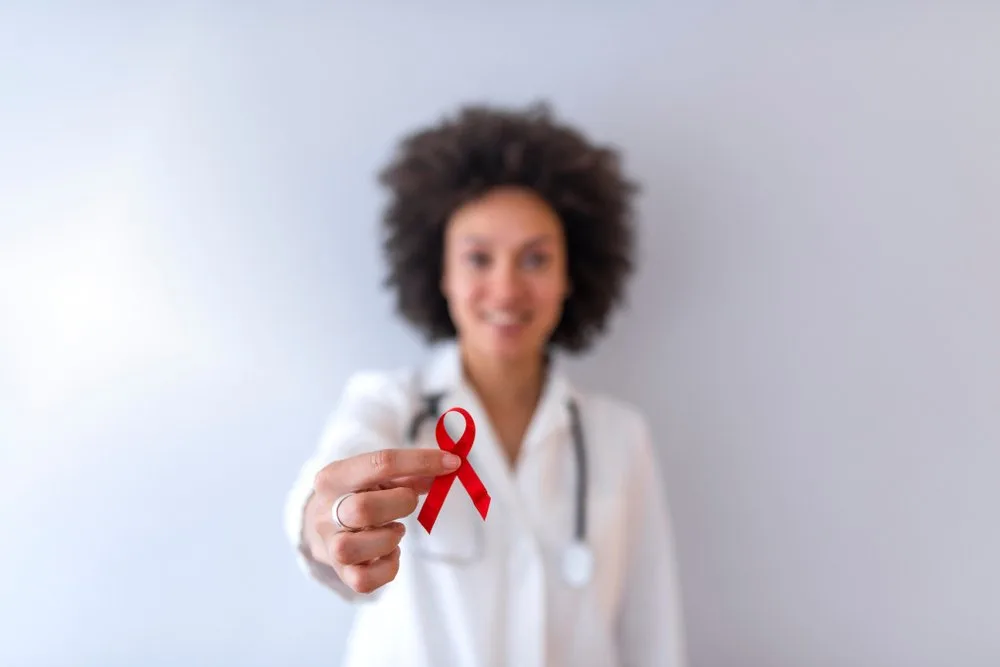Women account for more than half the number of people living with HIV worldwide. On the African continent, the numbers are even more concerning:
- In East and Southern Africa, young women will acquire HIV five to seven years earlier than their male peers. Additionally, seven young women become newly infected with HIV for every three young men.
- In western and Central Africa, five young women become HIV-positive for every three new infections among young men.
- In South Africa, of the 7 500 000 adults living with HIV, 4 700 000 are women. Additionally, new HIV infections among young women aged 15–24 years are more than double those among young men.
So with that in mind, a new study could help turn the tide of the HIV epidemic on the African continent. The study, called HPTN084 and led by the HIV Prevention Trials Network (HPTN), an international collaborative funded by the National Institutes of Health, tested an antiretroviral injection given every two months, that could be proven to be more effective than a daily pill at preventing HIV infection in women.
HIV injection-prevention study
The study was conducted among 3223 women aged 18-45 years old who were at risk for contracting HIV in 20 sites across seven countries in sub-Saharan Africa. These countries were Botswana, Kenya, Malawi, South Africa, eSwatini (Swaziland), Uganda, and Zimbabwe.
The study randomized participants into two groups with one group being administered the antiretroviral drug caboregravir every two months and the other group receiving the antiretroviral drug Truvada.
Truvada is extremely effective in preventing HIV transmission, providing a 92%-99% reduction in HIV risk as long as they take the pills every day as directed.
The study results
The injection was 89% more effective at preventing HIV when compared with the Truvada pill.
Of the 3223 women in the study, 38 went on to contract HIV while being part of the study. Of the 38 women that contracted HIV, four of these women were from the group receiving the injectable. The remaining 34 had received the pill.
What does this mean for HIV prevention?
“If we’re going to get to the end of the epidemic, we have to do something to stem the tide of infection in those women,” said Dr. Kimberly Smith, head of research and development at ViiV Healthcare, which manufactures the injection. “That is why this study is so important. It gives a new, incredibly effective option for women.”
When it comes to HIV prevention, the options are quite limited for women as they’ve only had condoms or PrEP as options.
Dr. Sigal Yawetz is an expert on women with HIV at Brigham and Women’s Hospital in Boston. He was not involved in the trial.
“We’ve been waiting for a PrEP strategy that would work in women, and I think we have one now… It’s very exciting…I’d like women to have as many options as they can that are affordable and safe, depending on their needs.”
The struggle with HIV pills
Additionally, the issue of accessibility and awareness can also make it hard for women to use these pills.
“One of the stumbling blocks in our prevention [efforts against HIV] has been the inconsistency or lack of efficacy of pre-exposure prophylaxis (PrEP) in those who need it the most,” said Dr. Anthony Fauci, director of the National Institute of Allergy and Infectious Diseases in America, “Namely young women, particularly those in southern Africa.”
In 2016, South Africa became one of the first African countries to begin offering Truvada. By 2018, the department of health managed to start about 25 000 people on the tablet and this number rose to more than 80 000 people by October of this year.
How accessible would it be?
Firstly, Cabotegravir’s makers are still seeking approval from regulators to sell it for HIV prevention.
Secondly, it’s important to remember that pricing may be a serious issue. When Truvada was first introduced, it was outside a lot of people’s price ranges. Even now, it’s still too expensive for many people and this is why generic versions of Truvada exist.
Moreover, poor healthcare structures can also make women accessing injection difficult. This is especially worrying as the injection needs to be given by a medical professional.
Sinead Delany-Moretlwe was one of the lead investigators on the new study. She is also head of research at Wits Reproductive Health and HIV Institute at the University of the Witwatersrand.
Delany-Moretlwe estimates that it could take about two years for the injectable to reach the public. In the meantime, she advises that we begin to asses the potential cost of the injection.
The fight continues
It’s important for us to remember that the fight against HIV is not over.
The new injection could be a great option for many women. However, it’s important that we do our best to inform and raise awareness on HIV prevention options that already exist. Furthermore, we need to put pressure on governments and organizations. They need to make these prevention options easily accessible to at-risk populations so that they can readily use them.
A word from the World Health Organisation (WHO)
“Cabotegravir long-acting and manufacturing capacity will have to be developed. There are also other safety and implementation issues that need to be considered prior to a broader roll-out. Safety studies in adolescents and among pregnant and breastfeeding women will be needed and open-label extension studies will need to be considered to understand the most effective and acceptable implementation approaches.”




